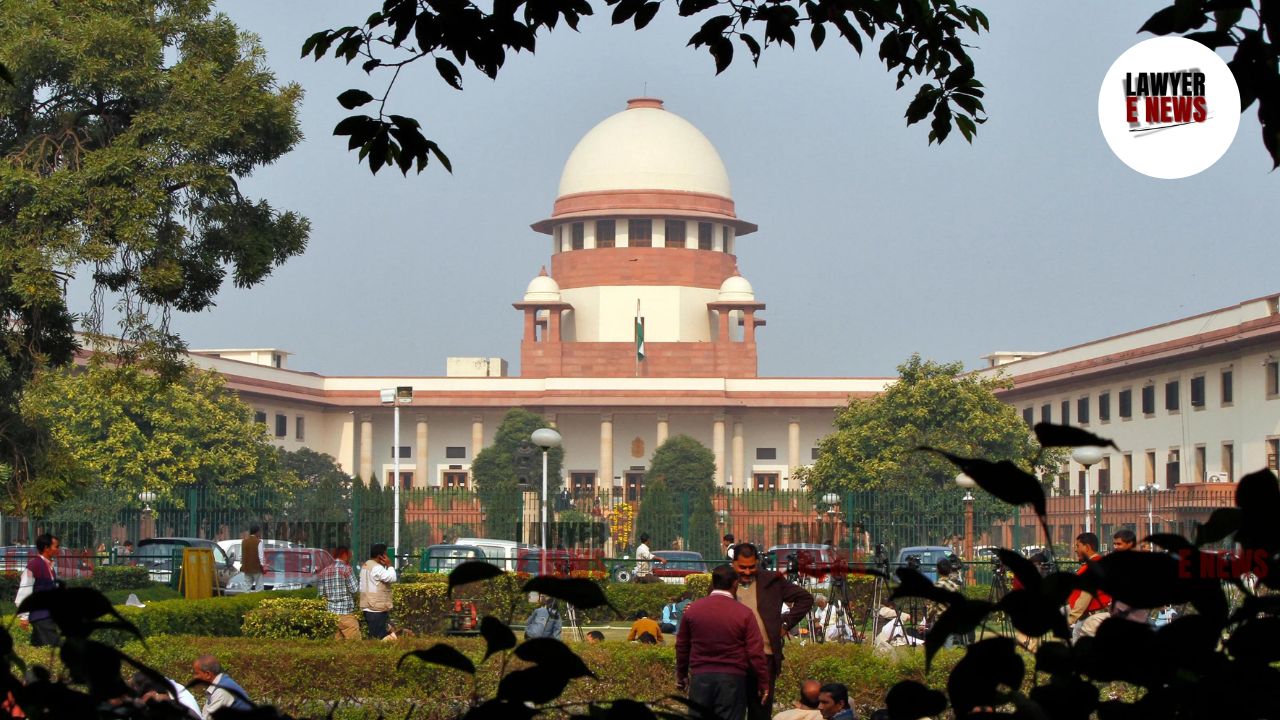-
by Admin
15 February 2026 5:35 AM



Supreme Court of India upheld the conviction under Section 326 IPC but reduced the sentence to the period already undergone. The Court invoked its inherent powers to recognize a post-conviction compromise between the parties, despite the offense being non-compoundable under the Criminal Procedure Code (CrPC).
The Bench, comprising Justice Vikram Nath and Justice Prasanna B. Varale, highlighted that exceptional circumstances, including a voluntary settlement and compensation paid by the convict, warranted judicial intervention to ensure lasting peace between the parties.
The case arose from a violent altercation in 2008 over a property dispute in K.R. Pete, Karnataka. The applicant, H.N. Pandakumar, along with others, was accused of assaulting the complainant, Puttaraju, causing grievous injuries. The trial court convicted Pandakumar under Section 326 IPC (causing grievous hurt using dangerous weapons) and sentenced him to two years of rigorous imprisonment (RI), later reduced to one year RI by the Karnataka High Court in 2023.
After the Supreme Court dismissed his Special Leave Petition on January 19, 2024, Pandakumar reached an amicable settlement with the complainant. As part of the compromise, Pandakumar agreed to pay ₹5,80,000 as compensation to resolve the criminal matter and related property disputes. The complainant supported the settlement through an affidavit, emphasizing the need to end lingering hostility between the families.
Recognition of Settlement Despite Non-Compoundable Nature
While Section 326 IPC is classified as a non-compoundable offense, the Court observed that it could exercise its inherent powers to recognize the compromise in exceptional cases. Citing previous rulings, the Court stated that voluntary settlements promoting peace and harmony warrant judicial intervention. It emphasized, “The law must be applied in a manner that upholds justice and fosters societal harmony.”
Reduction of Sentence
The Court upheld the conviction but reduced the sentence to the period already undergone. It noted that the settlement, accompanied by monetary compensation, reflected a genuine effort to resolve the dispute and prevent future discord. The Court further stated that lingering hostility between neighbors or relatives could disturb the social fabric of the community, making reconciliation through amicable settlements crucial.
Public Policy and Social Harmony
The Court clarified that recognizing such settlements does not undermine the deterrent purpose of criminal law but instead balances justice with the practical realities of maintaining peace in close-knit communities. It noted that both parties lived in proximity, separated only by a road, making reconciliation essential for future harmony.
The Supreme Court allowed the Miscellaneous Application, recalling its earlier dismissal of the Special Leave Petition, and granted leave to appeal. It upheld the conviction under Section 326 IPC but reduced the sentence of one year rigorous imprisonment to the period already undergone. The complainant’s affidavit supporting the settlement was accepted, and all related interlocutory applications were disposed of.
The Court concluded, “Exceptional circumstances, such as a genuine settlement between parties in long-standing disputes, justify the invocation of inherent powers to reduce sentences in non-compoundable offenses.”
The Court also took judicial notice of the ₹5,80,000 compensation paid by Pandakumar as part of the settlement, deeming it a sincere effort to address the harm caused to the complainant.
The Supreme Court’s judgment in H.N. Pandakumar v. The State of Karnataka reflects a pragmatic approach to criminal law, recognizing the importance of reconciliation and social harmony in disputes involving closely related or neighboring parties. By reducing the sentence while upholding the conviction, the Court balanced the principles of justice with the realities of fostering peace in the community.
Date of Decision: January 7, 2025
